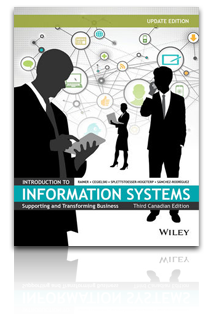Facebook is now recycling users’ Likes and using them to promote “Related Posts” in the news feeds of the user’s friends. And one more thing, the users themselves have possibly never seen the story, liked the story or even know that it is being promoted in their name. Source: Fortune Magazine Date: January 3rd, 2017 Link: http://www.forbes.com/sites/anthonykosner/2013/01/21/facebook-is-recycling-your-likes-to-promote-stories-youve-never-seen-to-all-your-friends/#2b6cc6e05777 Discussion… Read more »
Posts Categorized: Ethical Issues
U.S. President-elect Trump’s Labor secretary is no stranger to debate over jobs and robots
Donald Trump’s nominee for Labor secretary is well-acquainted with one of the hottest debates about work today: automation. Andrew Puzder, the chief executive of CKE Restaurants, has extolled the benefits of automation, while also criticizing government for pushing businesses to use machines instead of humans. (CKE Restaurants is the parent company of Carl’s Jr., Hardee’s,… Read more »
Amazon imposes limit on reviews
Online marketplace Amazon has placed a limit on the number of reviews shoppers can leave on the site. In a bid to put a stop to false feedback, people can now write only five reviews a week of items not bought via the online store. The change applies to most products and is part of… Read more »
Great. Now Even Your Headphones Can Spy on You
CAUTIOUS COMPUTER USERS put a piece of tape over their webcam. Truly paranoid ones worry about their devices’ microphones—some even crack open their computers and phones to disable or remove those audio components so they can’t be hijacked by hackers. Now one group of Israeli researchers has taken that game of spy-versus-spy paranoia a step… Read more »
Tech firms seek to frustrate UK internet history log law
Plans to keep a record of UK citizens’ online activities face a challenge from tech firms seeking to offer ways to hide people’s browser histories. Internet providers will soon be required to record which services their customers’ devices connect to – including websites and messaging apps. The Home Office (the UK department responsible for the… Read more »
Facebook made China censorship tool
Facebook worked on special software so it could potentially accommodate censorship demands in China. Since 2009, the only way to access Facebook in China has been via a virtual private network – software designed to “spoof” your real location and avoid local internet restrictions. Facebook, which has 1.8 billion active users, is aggressively looking to… Read more »
Canadians want judicial oversight of any new digital snooping powers for police
Most Canadians feel strongly about their right to privacy online, but a new poll shows the vast majority are willing to grant police new powers to track suspects in the digital realm — so long as the courts oversee the cops. Source: CBC Date: November 17th, 2016 Link: http://www.cbc.ca/news/investigates/police-power-privacy-poll-1.3854186 Discussion 1) In the US, leaks by a whistleblower, Edward… Read more »
Beware online “filter bubbles”
[ted id=1091] As web companies strive to tailor their services (including news and search results) to our personal tastes, there’s a dangerous unintended consequence: We get trapped in a “filter bubble” and don’t get exposed to information that could challenge or broaden our worldview. Eli Pariser argues powerfully that this will ultimately prove to be… Read more »
‘Invulnerability illusion’ leaves younger people exposed to web frauds
If you’re a younger person who thinks older people are more likely to get scammed online than you are, your dodgy prince awaits. A recent Better Business Bureau study found 69 per cent of online scam victims are under 45 — and millennials are more likely to get conned than baby boomers. “Despite the perception that… Read more »
Battlefield 1: Can a video game about WW I be both entertaining and a history lesson?
After about two minutes — if you survive that long — you run out of ammo, and find yourself outnumbered. When you’re inevitably gunned down, a short card with your soldier’s name and lifespan appears on the screen — for example, “Matthew Collings (1884-1918).” Then you’re placed in the role of another doomed recruit, in another part of… Read more »

